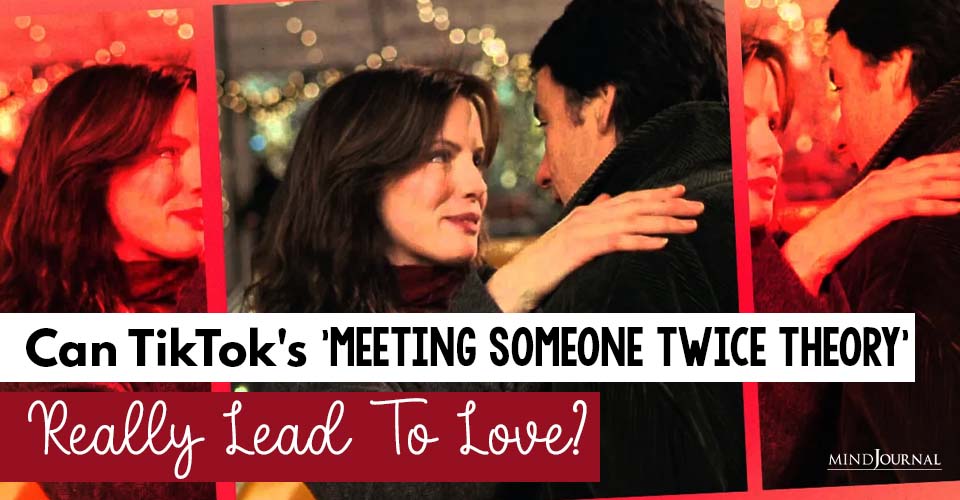Wanting emotional closure after the end of a relationship is natural, but unfortunately, it’s not always that easy to come by. Sometimes, you need to get emotional closure in a relationship, all by yourself.
A couple of years ago, I got a quite unexpected email from an old boyfriend. I’d only talked to him once after a mutual friend had died – a conversation that had only focused on memories of that person and our own unique grief.
He told me about something I said when we were both in college about what I’d learned was the best way to wash dishes. He laughingly said that he remembered that domestic advice from time to time when he was performing the dreaded chore.
The email ended with a sweet sentence about gratitude for our relationship.
I teared up when I read it. I returned the same kind of message to him – one of kind reminiscence and appreciation.
Of all the relationships I’ve had in my life, I can think of only two others that ended with that kind of respect. And although I’d tried, from my perspective, to achieve such closure in (especially) my two divorces, my efforts had been rejected.
Ironically, I realize that the marriages might not have ended had we been capable of such a conversation… but that’s hindsight.
Read 10 Steps To Get CLOSURE When There Is None
If you long for emotional closure…
Many people long for this kind of emotional closure. This is true not just for divorce or other romantic relationships that end, but also for friendships that suffered from misunderstanding or betrayal of confidences, or estrangement from a sibling or a parent. Even if there isn’t hope for complete reconciliation, people can carry tremendous pain that a relationship that was once extremely vital in their lives didn’t end respectfully.
It’s painful to recognize that people you once nurtured and sacrificed for, relationships that had incredible power in your daily life, are now gone without having a mutual understanding of the situation and its untangling.
“I wish we could both talk about how our relationship suffered. I’m quite willing to take my share of the responsibility, but they refuse to talk. I haven’t seen my parents in years.”
“I hear that she blames me for everything. I want her to know that I really cared for her.”
“He just disappeared… I still don’t have a clue what went wrong.”
What You Can Do to Get Closure On Your Own…
There are things you can do to help yourself get the closure you need. It takes time and patience. But you can do it. Here are four ways for you to get emotional closure — for yourself.

1. Realize That Not Everyone Has The Willingness To Take Responsibility For Themselves.
Often the conversation you can imagine having is just that. It’s in your imagination — or your fantasy. The other person doesn’t have the capacity to have an objective conversation with you. They’re not withholding something from you; they simply weren’t ever capable of doing that in the first place. You misjudged. You thought you could fix them. They prefer to blame you and live in that blame. Maybe they’re a narcissist and can’t fathom their own culpability.
There’s simply no way they’re going to sit down with you, and rationally and reasonably talk about the issues that ate away at your relationship. You’re only in control of half of that discussion. Trying to force won’t work. And you simply need to grieve on your own.
Read How To Move On Without Closure From Your Ex
2. Quit Trying So Hard And Give It Time.
If someone is blaming and even vicious toward you, your attempts at fixing it by trying to change their mind are probably only fueling the flame. Your own anxiety will stay ramped up and you’re feeding their antagonistic impulses with your attention, even though you’re attempting to do the opposite. Give it time and give them some space. Maybe a cooling-off period is needed for them to realize that their anger isn’t entirely founded.
Maybe you’ll get closure. Maybe you won’t. Trust that you can live with both.
3. Maintain Your Own Integrity.
This lack of closure is especially hard if the two of you have children together, and will be amplified if your ex has an agenda to disparage you in front of the kids or maintain a blaming stance. You worry about how your kids will handle that, or is there a way to mitigate any damage done by your ex.
If it’s a friendship or familial relationship that has deteriorated, it can feel awkward to maintain other shared relationships. You may choose to let some go, as others may feel the need to “take sides.” The loss of the bond can alter the dynamics of the larger friend group or family situation. You may have to set a boundary.
You can grow to trust that who you are will shine through. Be mindful of your own integrity and don’t be controlled by what your ex is doing or saying.
Guide your own life in a way that reflects your values. Your children will learn. Your friends will take sides or they won’t. If your biological family is not available, you can create your own family full of people you choose to have in your life.
Read 5 Steps To Heal An Emotional Wound
4. Make Sure You’re Moving Through Your Own Feelings.
It’s hard enough when relationships end that you’ve valued or worked hard on. Add a lack of closure to that picture, and it can cause more complicated grief. As in all grief, try to notice whether or not you’re moving through all the emotions of loss: denial, anger, fear, sadness. But take time to grieve.
You can give yourself closure. And you can move on. Whatever shame or anger or disappointment you feel, you can let go.
Written By Margaret Rutherford Originally Appeared On Dr. Margaret Rutherford










Leave a Reply